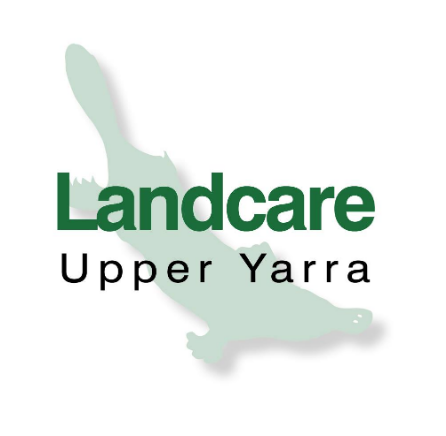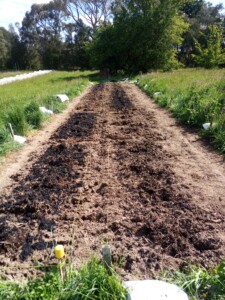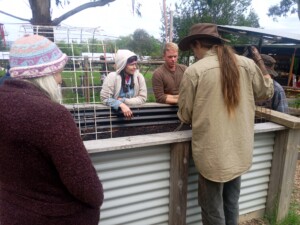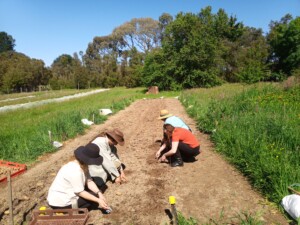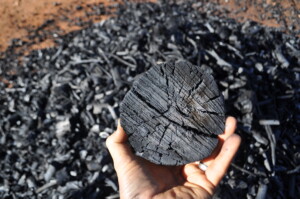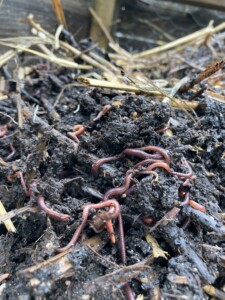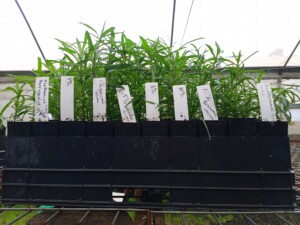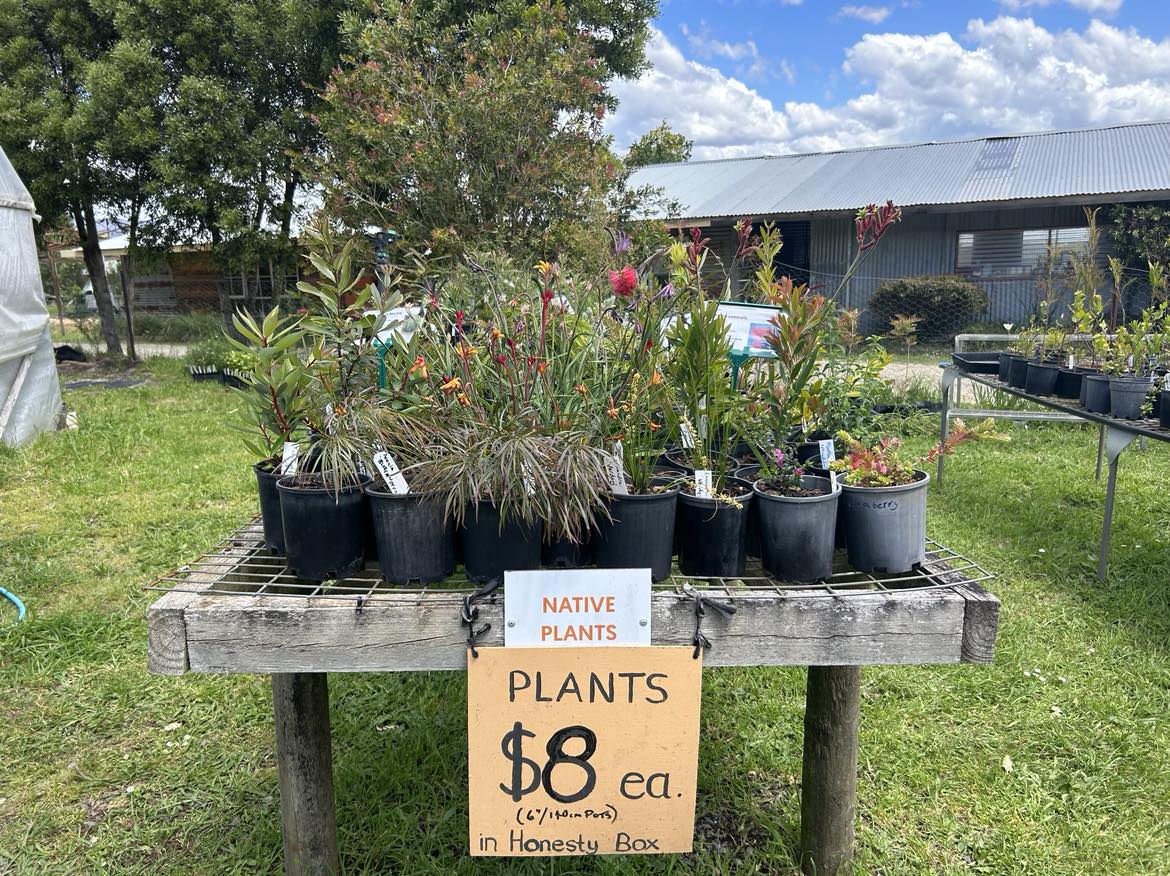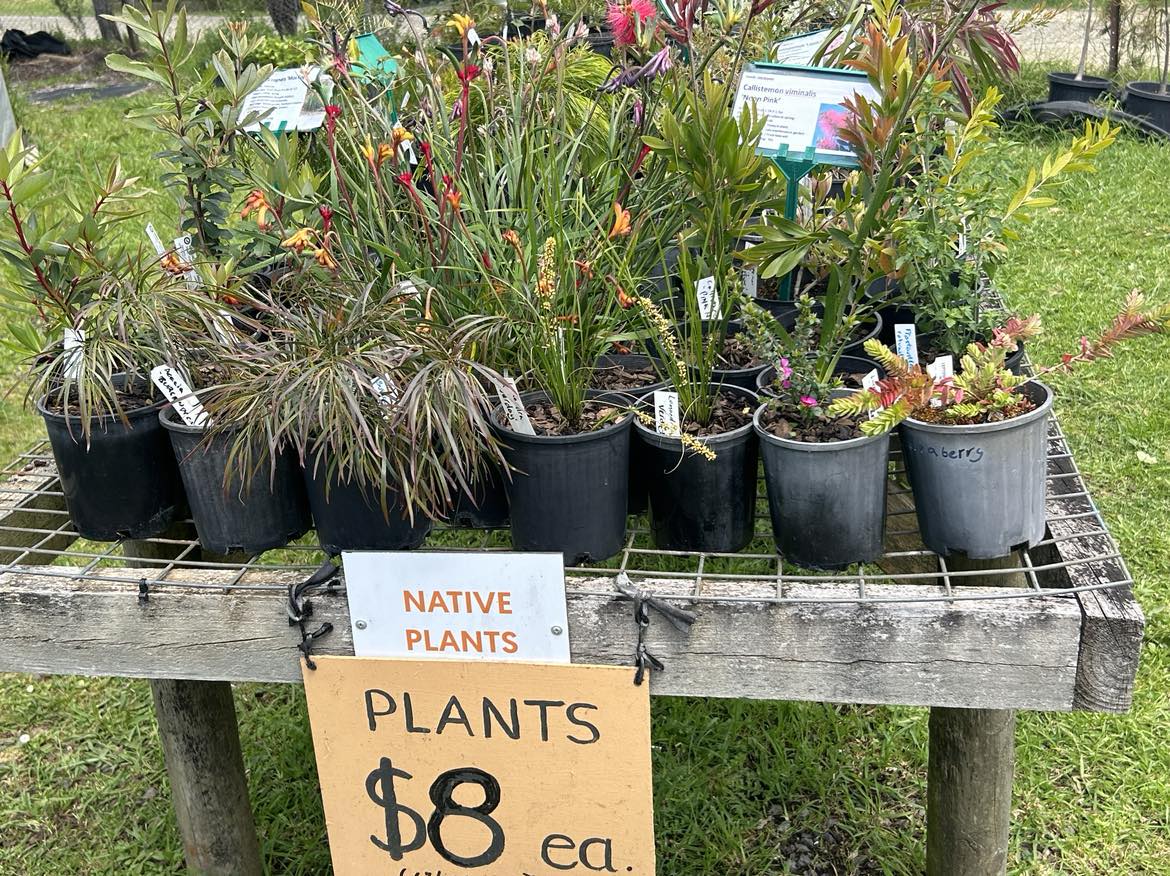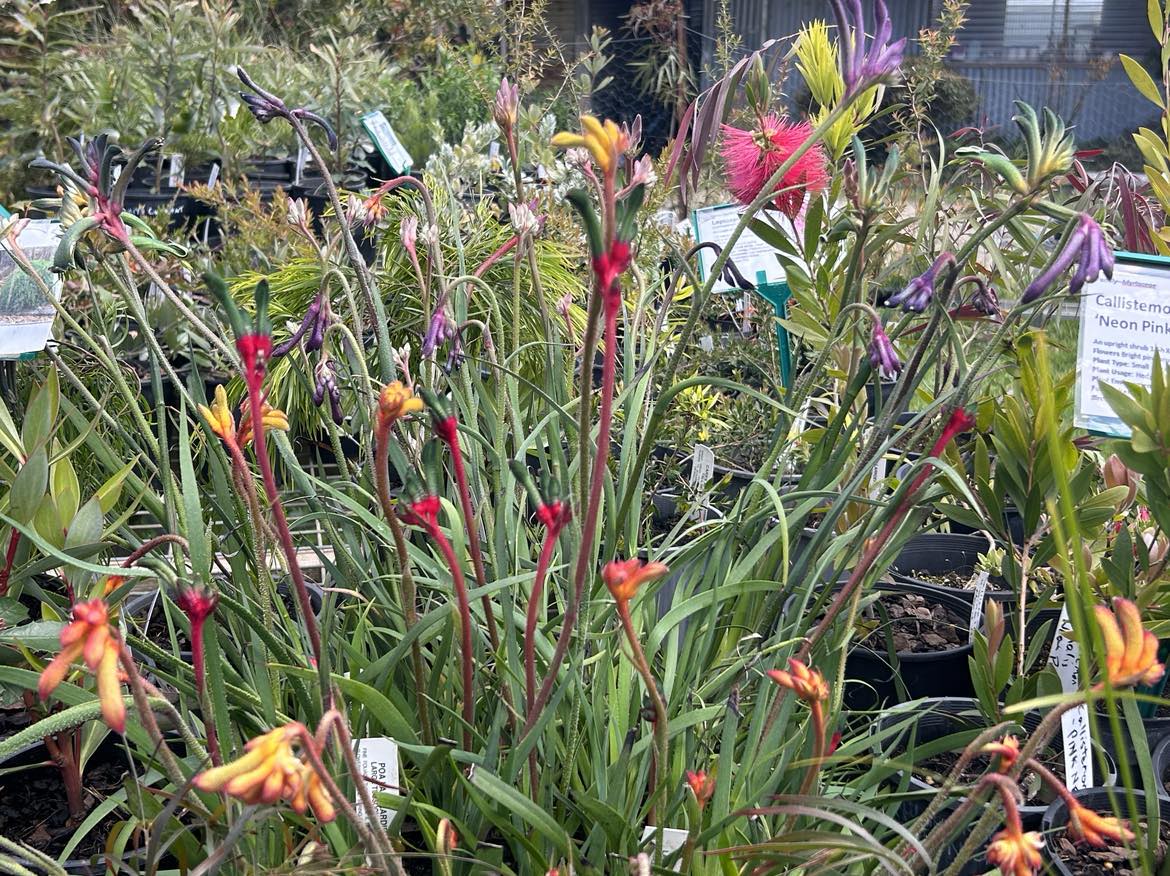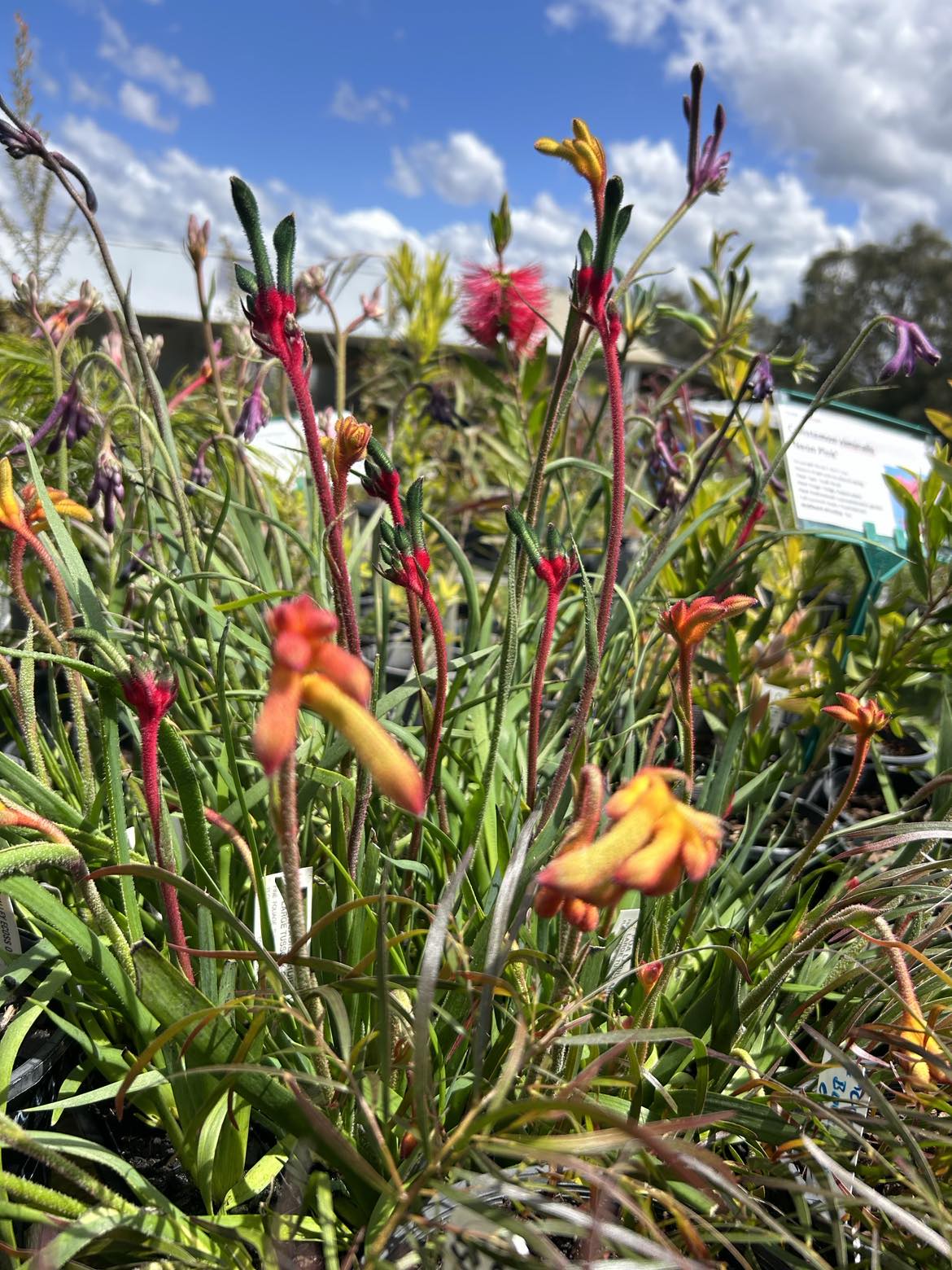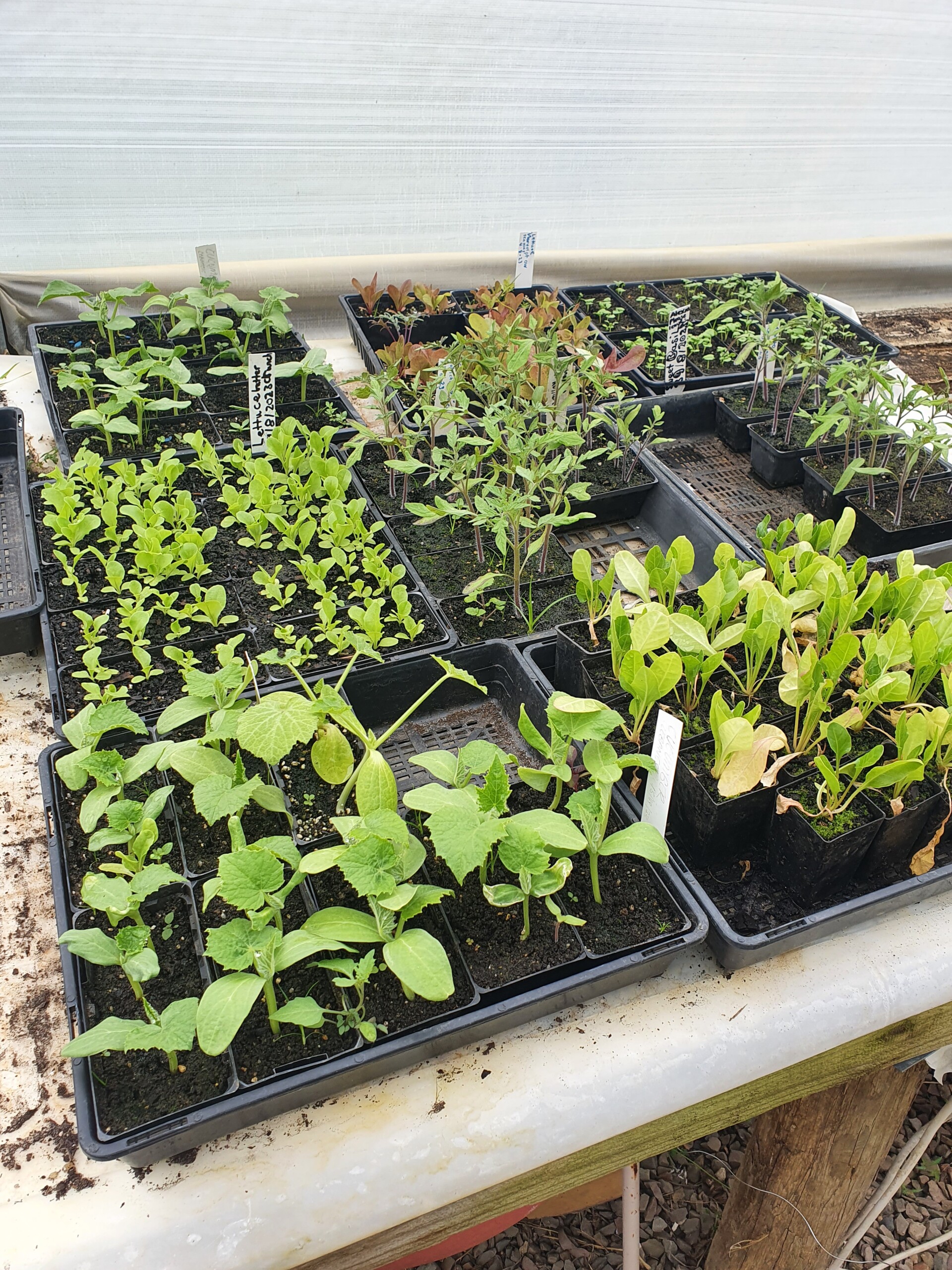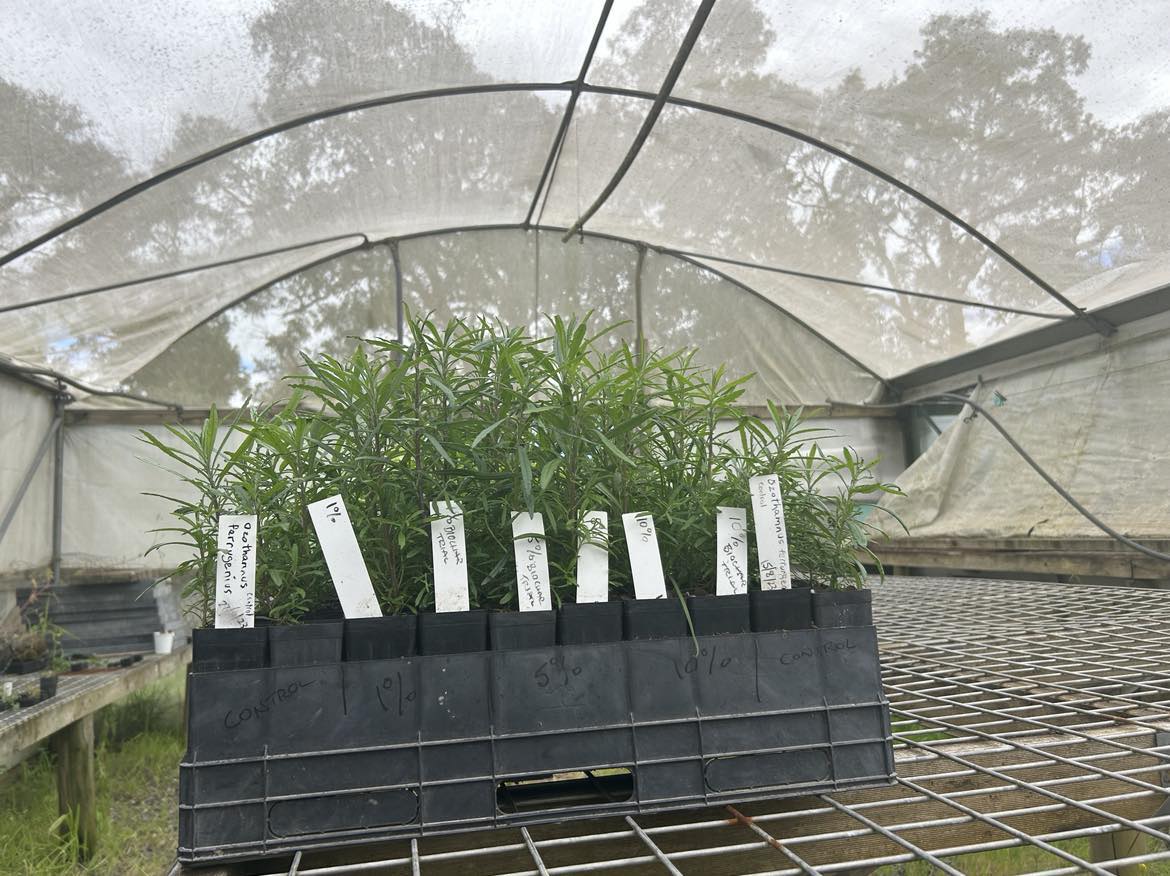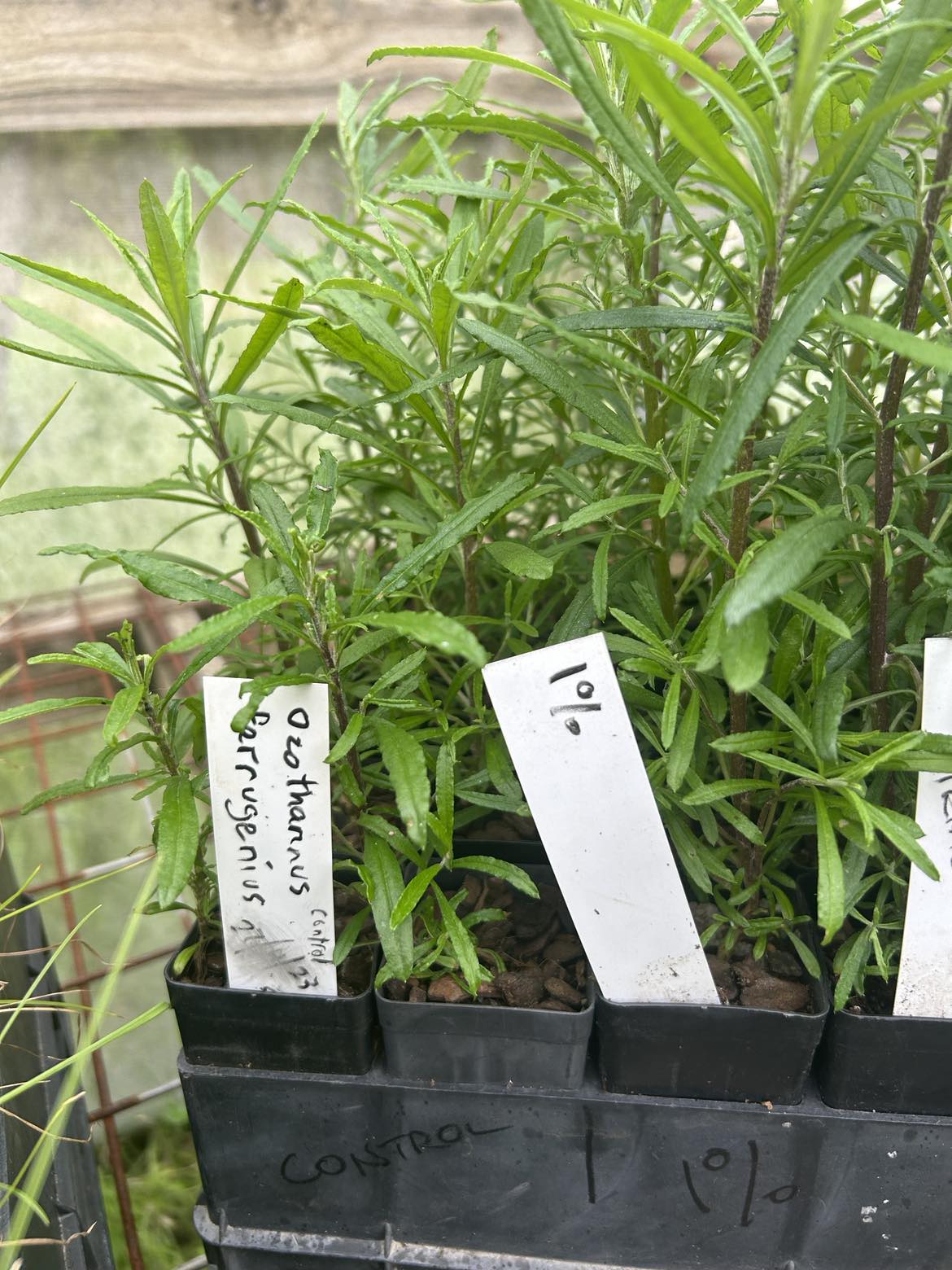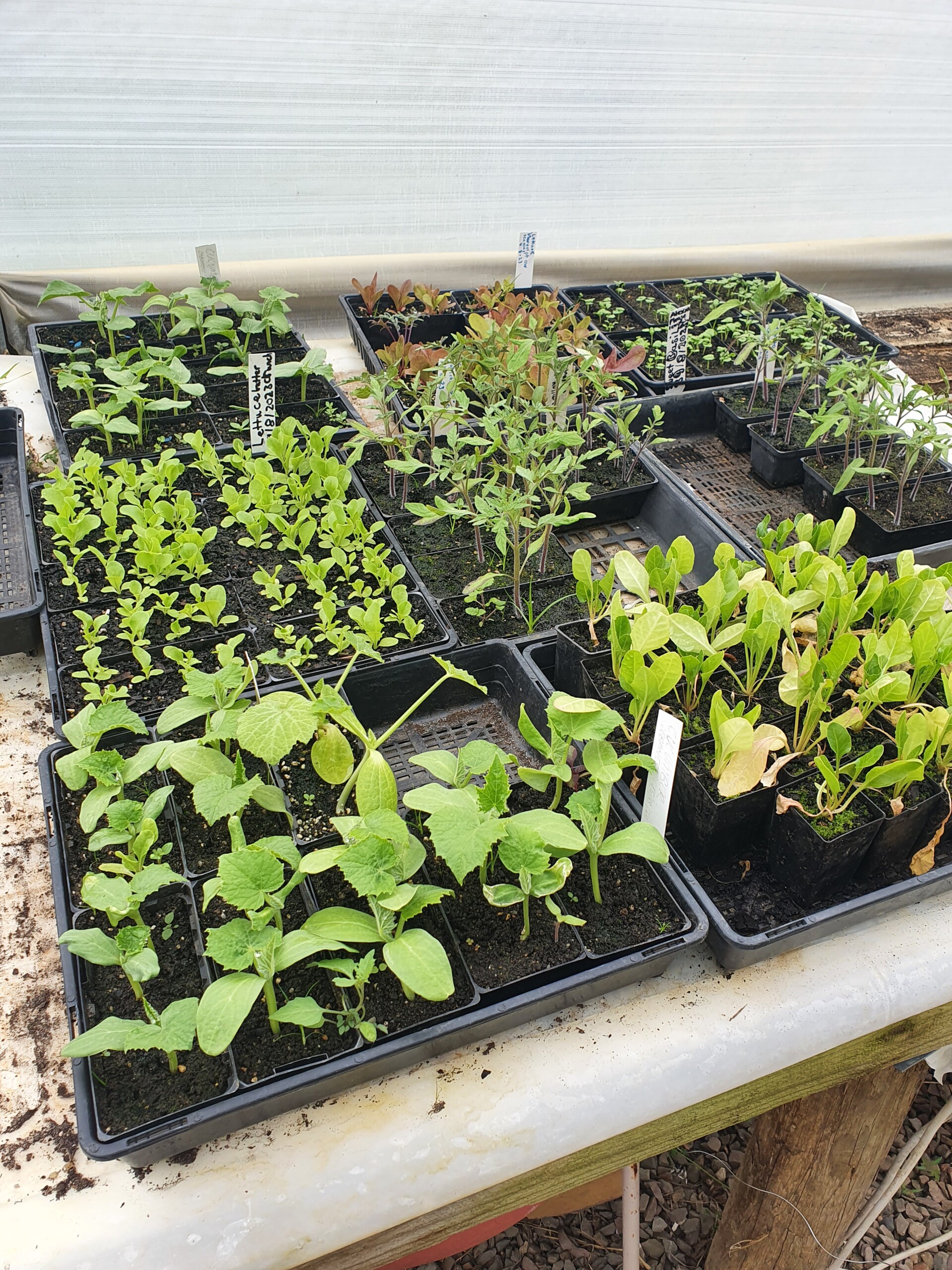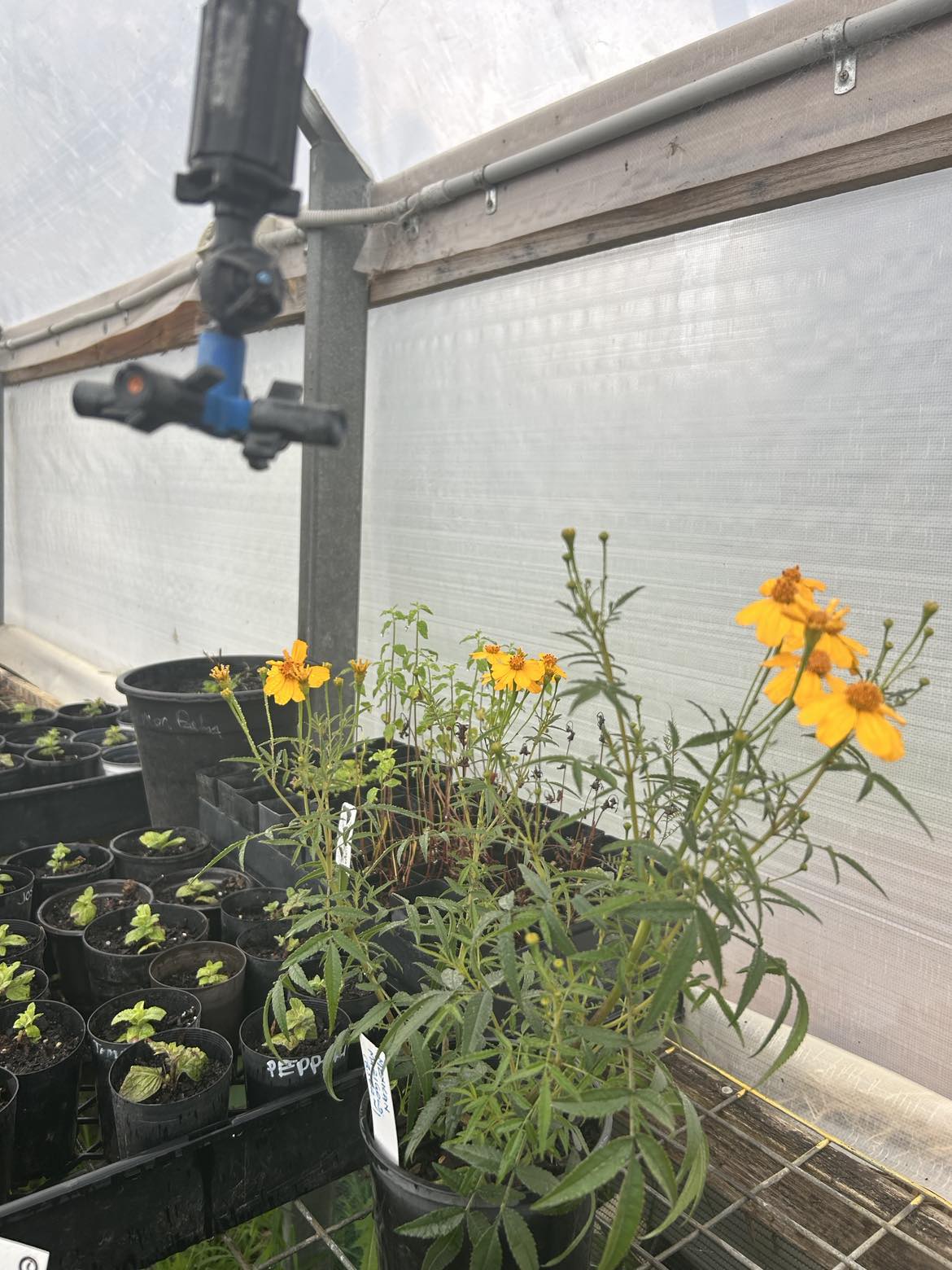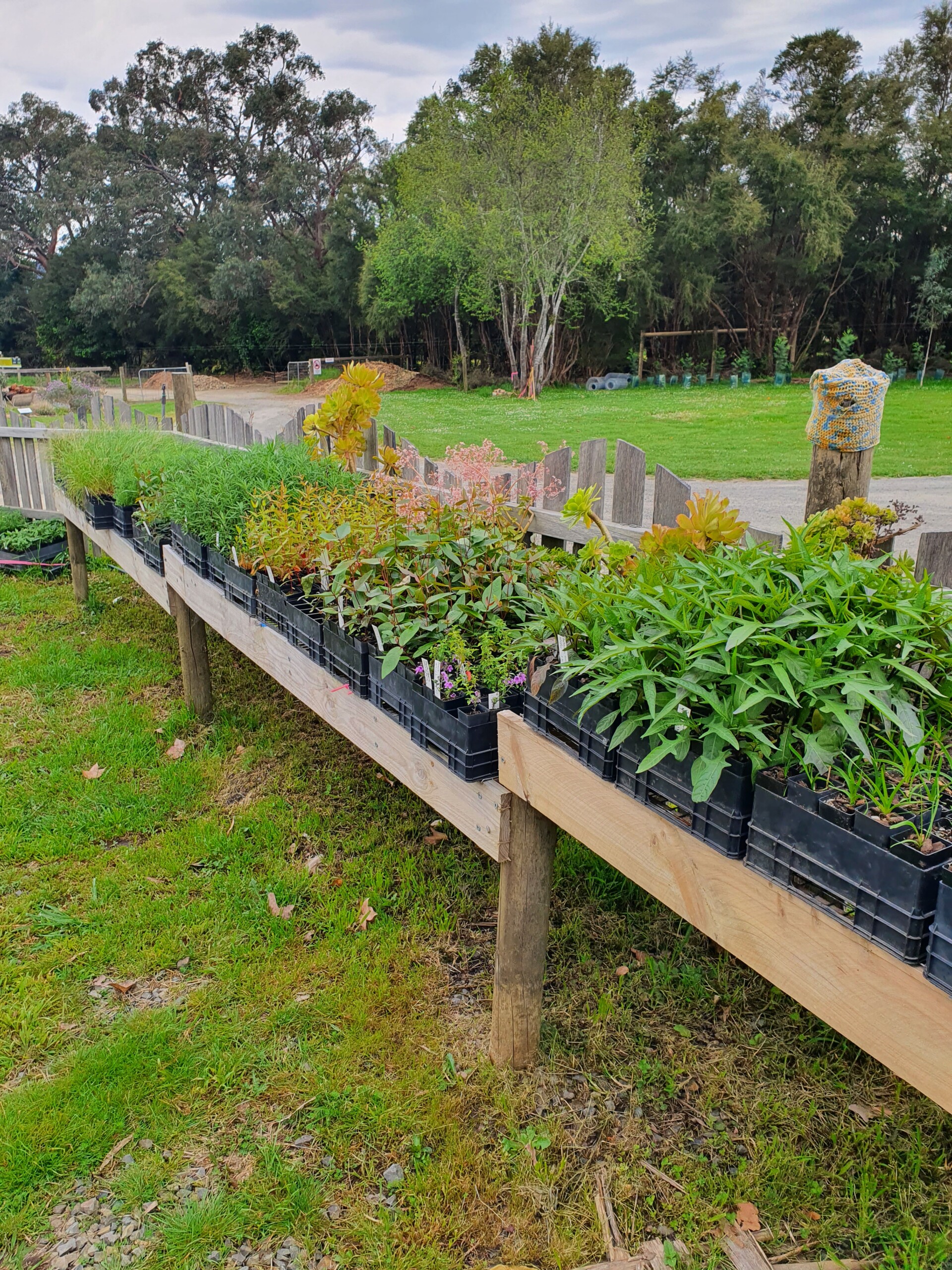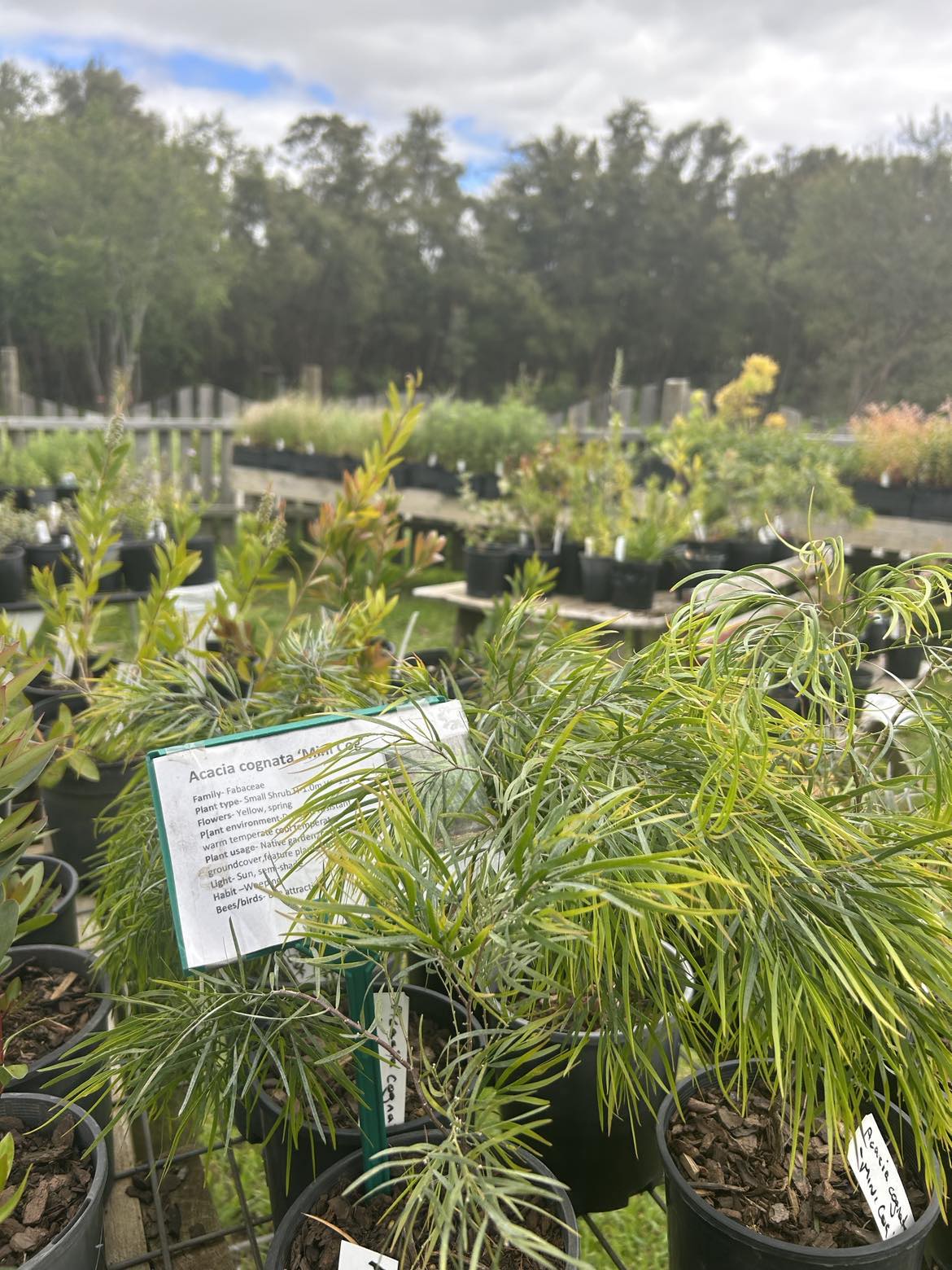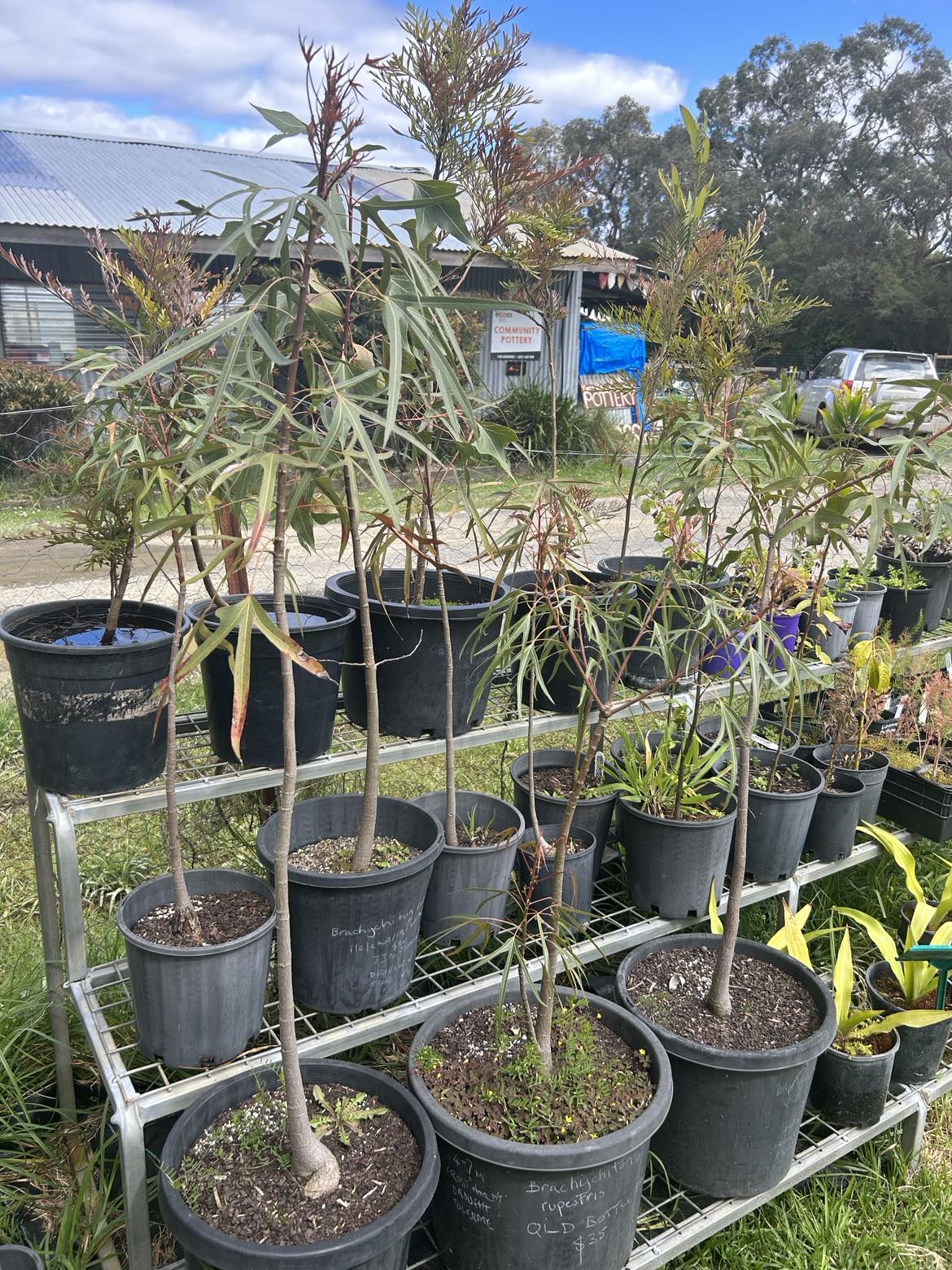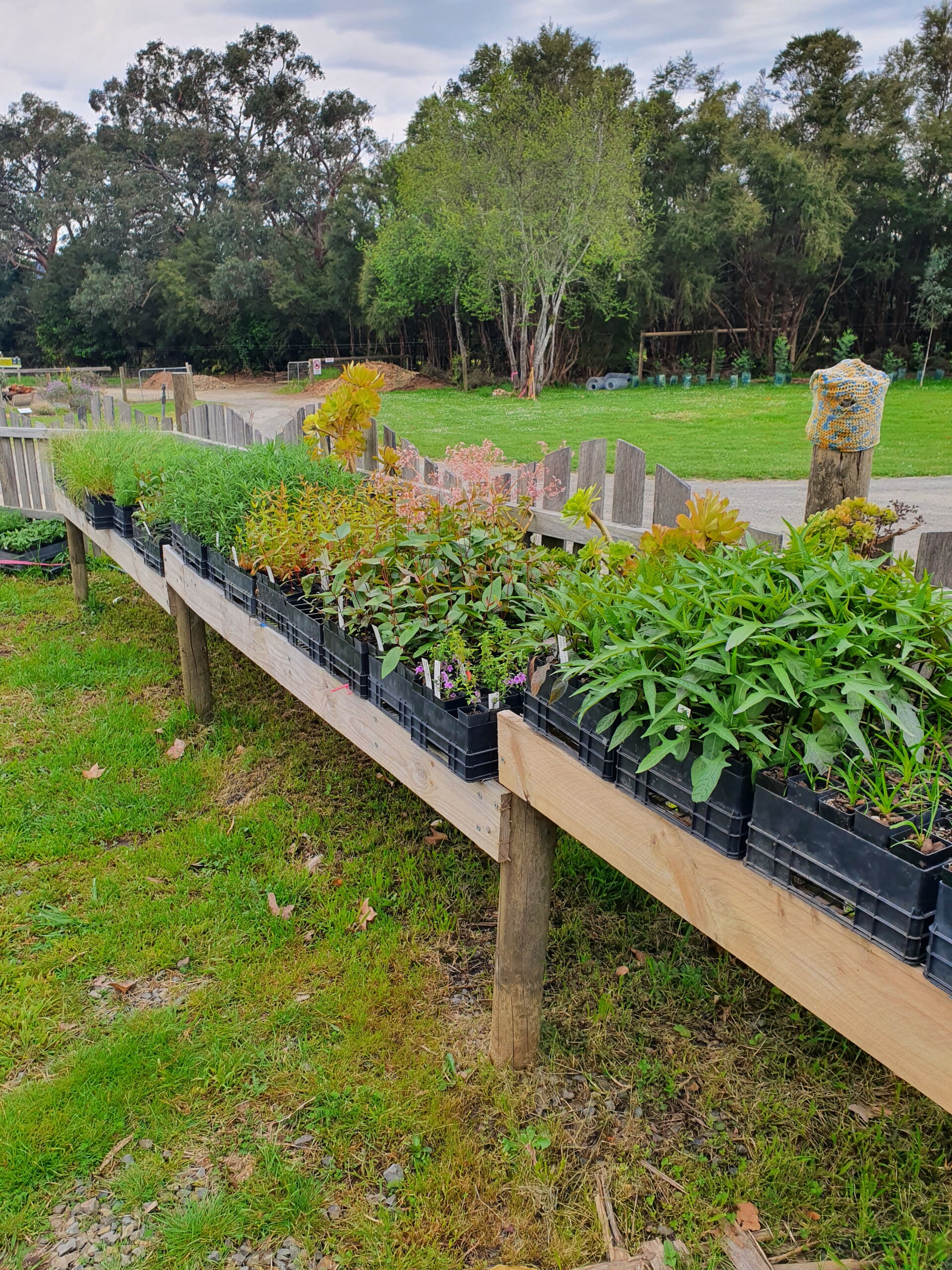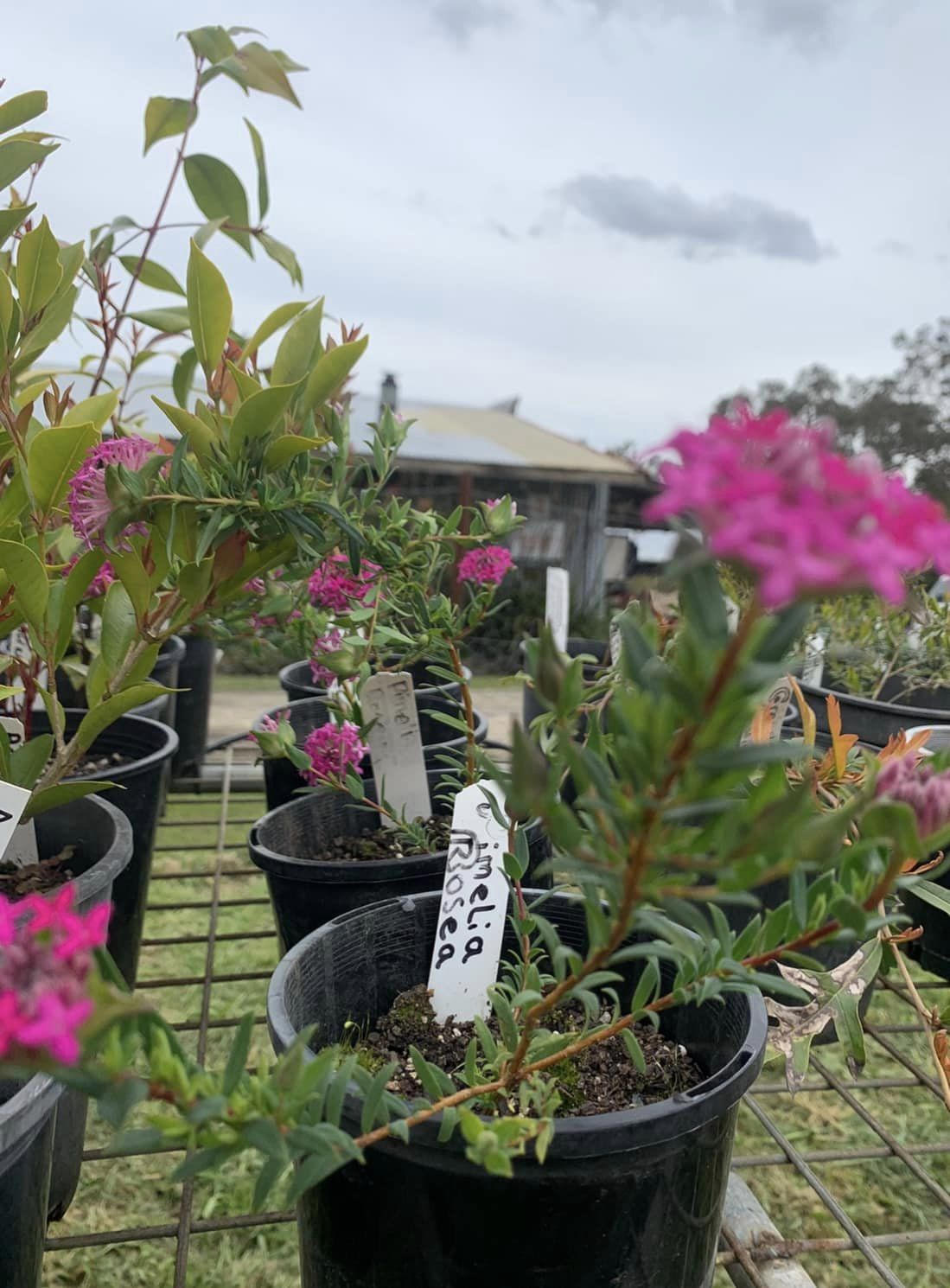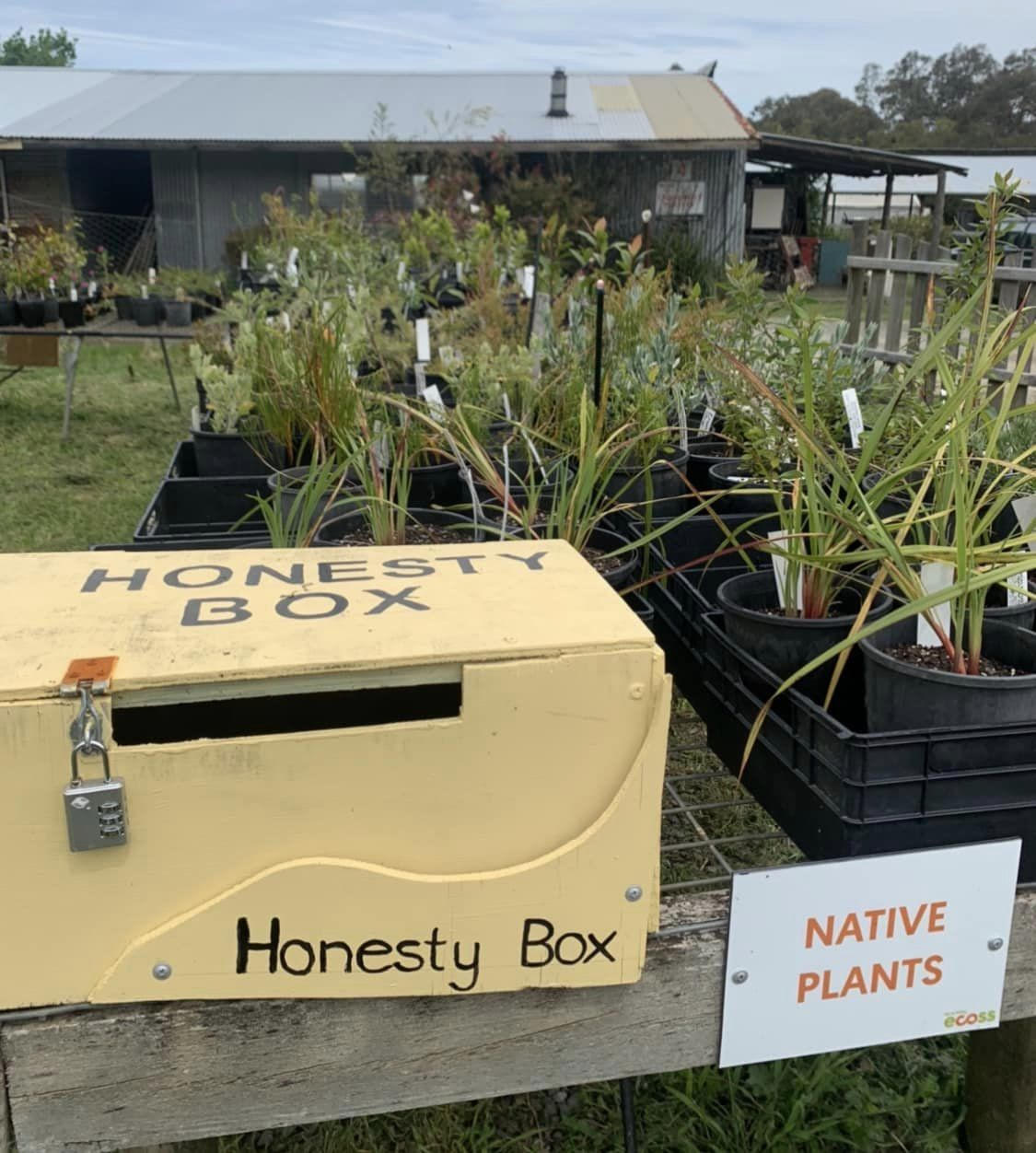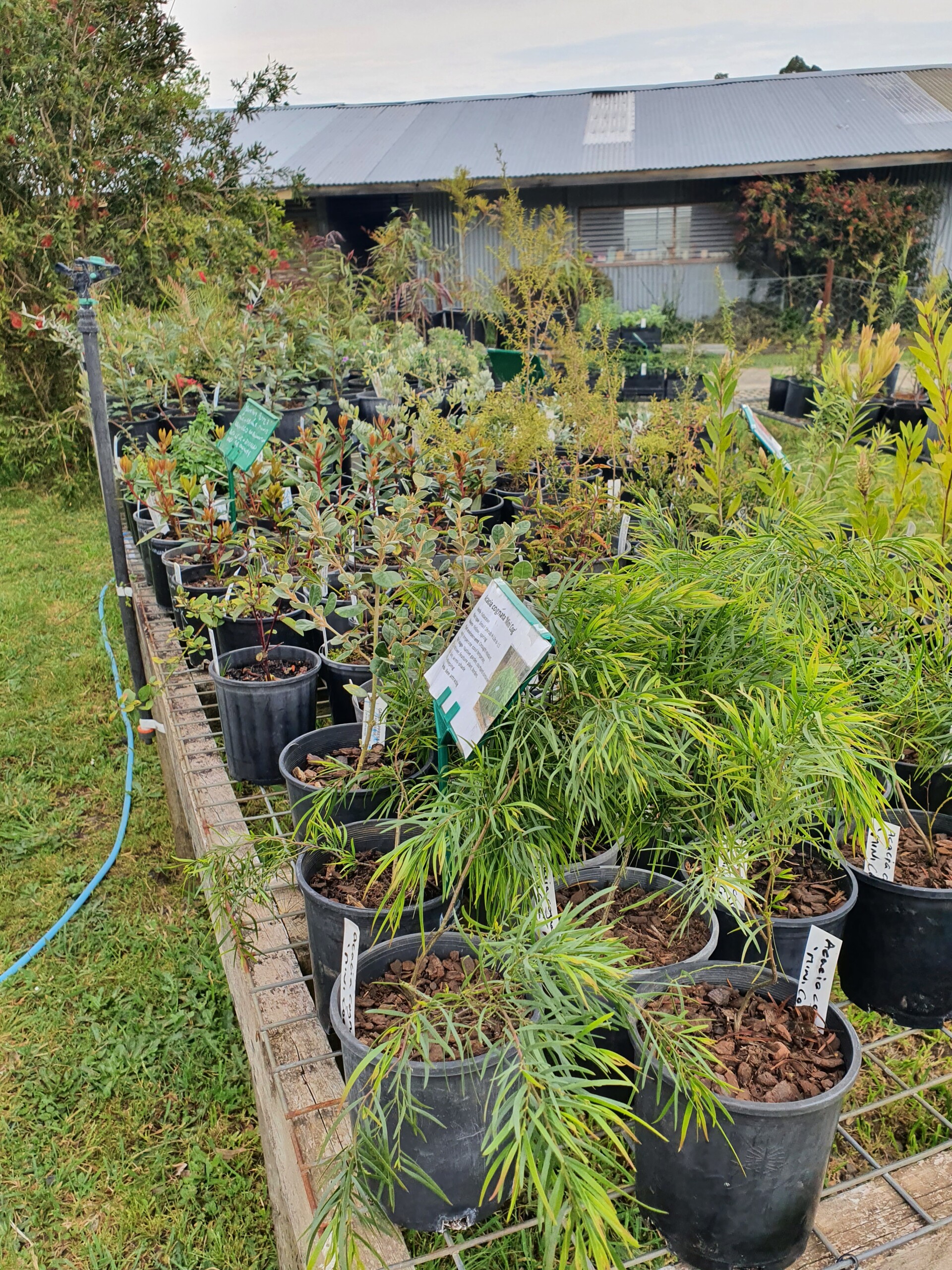Native Nursery
Overview
ECOSS Native Nursery is located within Yarra Valley ECOSS, 711 Old Warburton Hwy, Wesburn.
You’re welcome to come and visit to purchase plants 7 days a week and if staff are not in attendance, please deposit payment in the honesty box.
You can also email nursery@ecoss.org.au to find out what we have in stock or to place a bulk order.
We have an extensive range of popular garden plants, including banksias, callistemons, leptospermums, correas, various native grasses, ground covers, kangaroo paws in 6” pots and advanced trees such as Illawarra Fire Trees, Bottle trees in 20” pots.
The Nursery uses locally sourced seed where available and will cater for your revegetation needs.
We are now taking orders for Native Tube Stock for the next planting season, please allow time for your order to be prepared.
Prices are:
$8 for a 6 inch pot
$3 per tube
$125 for a box of 50 tubes
You can also purchase locally produced Bio Char from our native nursery. (See the Bio Char tab for prices and more information)
_________________
Upper Yarra Landcare members volunteer in the nursery to help propagate native plants to regenerate the local environment and to benefit our native fauna.
Volunteers of All Abilities volunteer through the Crops for Community program, 4 days a week in the Native Nursery.
The nursery aims to become financially self-sufficient through sales to continue running these valuable community programs and local native regeneration.
Pollination Place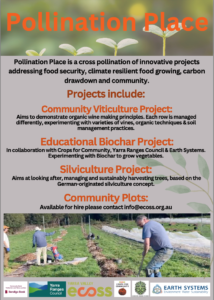
Pollination Place is a collaborative space at Yarra Valley ECOSS, utilising approximately 0.5 hectares in the southern corner of ECOSS. Pollination Place has various projects running that cultivate community involvement, learning, and sustainability outcomes. Current projects include:
– Farmer Incubator’s Pop Up Garlic Farmers Project
– Community Viticulture Project
– Educational Biochar Project run with Crops for Community
– Silviculture Project
Each project is run by different individuals or groups on their own timeline, yet all projects seek to be socially and ecologically mutually beneficial. Pollination Place also includes the dam, which is an important asset to wildlife, plants, and to ECOSS projects.
Educational Biochar Project run with Crops for Community
With the establishment of the new council Biochar processing facility in Lysterfield, ECOSS is working alongside Yarra Valley Council and EarthSystems to deliver the Biochar education program through creating demonstration plots within Pollination Place. The biochar project aims to demonstrate the benefits of using biochar in agriculture and climate mitigation through the drawdown of carbon in soils. The program runs with Crops for Community, which has successfully been using the ECOSS community garden for multiple years, and has created opportunities for connection, learning, and greater food security in the Yarra Valley, while supporting local food relief programs.
Email Kylie: eartheducation@ecoss.org.au
Biochar Information 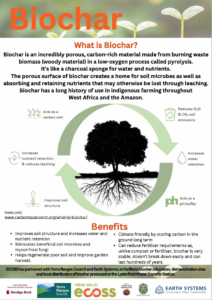
Give your soil a long term boost – store carbon and increase water and nutrient retention
What is Biochar?
Biochar is an incredibly porous, carbon-rich material made from burning waste biomass (woody material and leaves) in a carefully controlled low-oxygen process called pyrolysis. It is like charcoal but has particular properties that added to soil give improvements in soil and plant health.
Biochar has a long history in indigenous farming throughout West Africa and the Amazon rainforest where the incredible results can be seen even today. Many scientists believe this ancient agricultural technique has the potential to increase crop yields and remove carbon dioxide from the atmosphere. Instead of carbon dioxide being released during normal decomposition or open-air burning, the pyrolysis process locks carbon into a stable form that can be put back in the ground.
Various forms of biochar are being developed for use across many industries and are proving beneficial in agriculture and horticulture, as well as in soil remediation, livestock, construction industries and carbon sequestration.
In your garden, biochar is a soil additive, or enhancer, that helps soil to create, sustain, and replenish the growing environment for plants and organic life to thrive within. The structure of biochar provides a very large surface area, which holds water and nutrients and provides a home for beneficial soil microbes and mycorrhizal fungi. Once the biochar is nutrient-charged, it acts as a hub for microbial activity and nutrient exchange, which makes for happy soil life and healthy plants.
Benefits of using biochar in your garden:
- Improves soil structure
- Increases water and nutrient retention
- Stimulates beneficial soil microbes and mycorrhizal fungi
- Assists to regenerate poor soil and improve the harvest in your vegetable garden.
- Stores carbon in the ground
- Can reduce fertiliser requirements as unlike compost or fertiliser, biochar is very stable and doesn’t break down easily and can last hundreds of years
How to apply biochar
- Add to your compost or worm farm to boost microbial action and make an enriched mix ready to use. Add 10% of compost volume at any stage of the composting process at least 2 weeks before use
- Apply with your compost or nutrient mix (biochar is a soil improver not a fertiliser – so always add a nutrient-rich mix like compost, worm castings, frass, seaweed solution, or fish emulsion at the same time (or combine & soak prior to application).
- Target root zones – mix into soil, potting mix and planting holes. Can also be top-dressed for existing plants, or applied into holes/trench at the drip line/just outside root zone
- Use 1-5 Litres per square metre or 1-10% soil volume (ie. 1L of biochar spread over 1 square metre to a depth of 10cm is 1% biochar soil volume)
- Supercharge by soaking it for a few days (up to 2 weeks) in a mix of water and compost or nutrient-rich fertiliser (seaweed, worm tea)
How to supercharge: biochar + nutrients + water
- Mix together in a container (eg. wheelbarrow or bucket) the amount of biochar you would like to charge, an equal amount of compost or liquid fertiliser (eg. worm tea, seaweed solution)
- Cover with the volume of water required to submerge your biochar and nutrient mix. Stir well – water helps nutrients and microbes get into all the pores and pockets of the biochar
- Leave for 3 days and up to 2 weeks.
- Apply to your garden or pots as a wet slurry directly into planting holes, mixed with soil/potting mix, or onto the soil surface.
Note: The ratio of biochar to nutrients will depend on the type of nutrients you’re using. Adjust the type and ratio of nutrient mix to suit your plants and soil volume eg. up to 50% biochar, 50% compost/worm castings. Use the volume of water required to cover your biochar, and the dilution of liquid nutrient mix appropriate for that volume (ie. use dilution rates advised by the manufacturer).
Charging can be done on any scale – in a cup for adding to an indoor plant pot, in buckets or wheelbarrows for backyard gardens, or in troughs or tanks for market gardens and broad-acre farming.
Why supercharge? It allows the biochar to soak up the nutrients before it goes into the soil.
Biochar is mostly inert carbon, so it isn’t a source of nutrients in itself – but it’s good at holding those nutrients (and air and water) on its surface, which is covered in microscopic pores and pockets. It is like a hard, porous sponge made of carbon. Supercharging your biochar means it’s loaded with nutrients, ready and available for plants and soil life to thrive for many years to come.
Co-composting
Biochar in your compost or worm farm is another simple way to supercharge your biochar. As you build the layers in your compost, or when you feed your worms, add biochar to make up about 5 to 10% of the total volume, or a few generous handfuls each time you add a layer or turn it. This can be added at any stage of the process, at least two weeks before using your compost. The earlier the better!
The biochar increases microbial action, generating heat and speeding up the process. The porous surface of biochar absorbs and retains nutrients that may otherwise be lost through leaching. When it’s time to use your compost or worm castings in the garden, the biochar is already there and charged up ready to carry all those nutrients and microbes into the soil and hold them there for your plants to access.
If you don’t have time to supercharge, add nutrients at the same time as adding biochar. Water in well (ideally with a liquid fertiliser mix) so the nutrients can flow and settle into the soil and biochar.
Biochar at ECOSS
ECOSS is a supplier of locally sourced biochar. Yarra Ranges Council has collaborated with Earth Systems to build a large biochar facility on the old Lysterfield tip site. ECOSS has partnered with this project to facilitate the education program about biochar.
ECOSS is establishing some biochar demonstration vegetable plots for visitors to see. Purchase your biochar at the Valley Market on Fridays or contact eartheducation@ecoss.org.au to make an order or for more information on workshops or biochar.
Further information
Biochar organisations
- Australia New Zealand Biochar Industry Group (ANZBIG)
- Earth Systems/Green Man Char: Local biochar makers GMC website / Blog / Biochar references
Articles/Links
- How Biochar Works in Soils – Kelpie Wilson / The Biochar Journal
- A Perspective on Terra Preta and Biochar – Austin Liu
- Biochar and the Mechanisms of Nutrient Retention and Exchange in the Soil – Austin Liu
Videos
- What is Biochar? – animated video from Carbon Gold (UK biochar producer)
- What is biochar ANZBIG
- Biochar, dung beetles & cattle – Doug Pow
- How biochar removes CO2 from the air and helps farmers thrive – Axel ReinaldTED talk
Yarra Valley ECOSS Biochar Price List July 2023
| Quantity of Blended biochar (volume in litres) | ECOSS Yarra Ranges Resident Price:* Yarra Ranges residents get 15% off with code: YARRARANGES |
| 1L (Approx Weight 0.5kg) | $8.50 |
| 2L (approx weight 1kg) | $10 |
| 5L (Approx Weight 2.5kg) | $12.75 |
| 10L (Approx Weight 5kg) | $17.00 |
| 25L (Approx Weight 13kg) | $42.50 |
| 40L (Approx Weight 20kg) | $51.00 |
| 1000L (1m3) (Approx Weight 550kg) | $804.10 |
* Need to add the cost of freight to all prices unless customers organise pickup themselves
NOTE: customers need to supply their own container for small orders or ECOSS source some buckets/refillable containers to be returned by customers. Bulk buys are delivered in a large bag.
- Applying the biochar to plots in different ratios 20231017
- Community biochar workshop
- Planting day_ Volunteers planting potatoes in the ECOSS biochar demonstration plots
- Biochar chunk held in hand
- 2023-biochar-compost-worms
- 4 Ozothamnus ferrugenius ECOSS native nursery trial using different biochar ratios 20231003
To place an order, email: nursery@ecoss.org.au
Contact
General enquiries to info@ecoss.org.au
Ordering enquiries to nursery@ecoss.org.au
Direct enquiries eartheducation@ecoss.org.au
